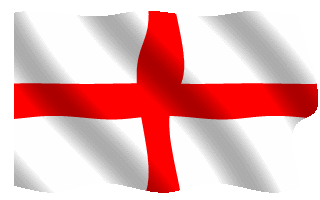
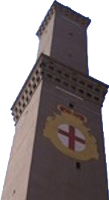 In 1684, for 12 days, a french fleet of over 150 ships shot 16,000 cannon balls on Genoa, the "Superb".
In 1684, for 12 days, a french fleet of over 150 ships shot 16,000 cannon balls on Genoa, the "Superb".
During the carnage the assailants landed over 3,500 soldiers to invade our City, but were rejected by our Fellow Citizens despite the fire coverage.
At the end of the 12 days, the french fleet retired, having exhausted all the blows for the cannons and troopers, while Our Unconquered Flags continued to garnish the bastions of the "Superb", blowing on the wind.
The french sun king was urged by the pope to suspend hostilities with Genoa, so the Doge Lercari was invited to versailles with all the honors: according to tradition, he replied to the king that the most extraordinary thing within so much opulence was for him the presence of the Genoese Doge himself.
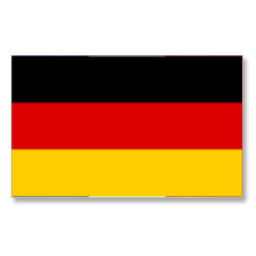
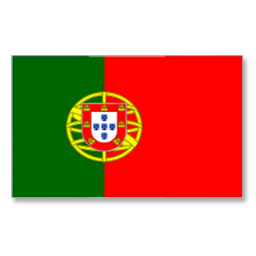
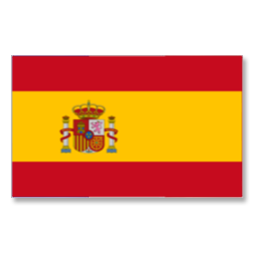
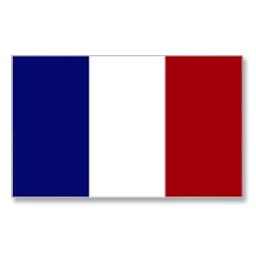
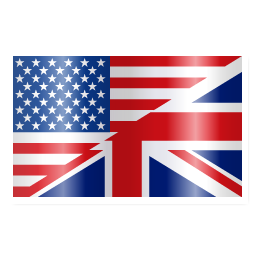
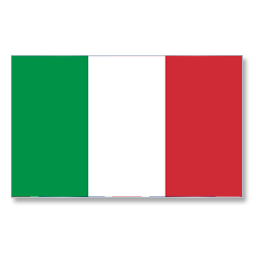 Courage, Humor and Indomitable Spirit have never been lacking in Genoa and its Sons and Daughters.
Courage, Humor and Indomitable Spirit have never been lacking in Genoa and its Sons and Daughters.
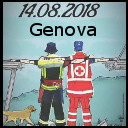 Today, August 18 MMXVIII, a tragedy has struck our City, it is tremendous, but nothing compared to what we have to suffer in the past and,
I am sure that, as happen in the past, we will fight with Passion, Love and Courage for our Friends, Brothers, Sisters, Fellow Citizens as well as to rebuild our Wonderful City.
We pray for victims and we reconstruct the bridge!
Today, August 18 MMXVIII, a tragedy has struck our City, it is tremendous, but nothing compared to what we have to suffer in the past and,
I am sure that, as happen in the past, we will fight with Passion, Love and Courage for our Friends, Brothers, Sisters, Fellow Citizens as well as to rebuild our Wonderful City.
We pray for victims and we reconstruct the bridge!
Go, Genoa!
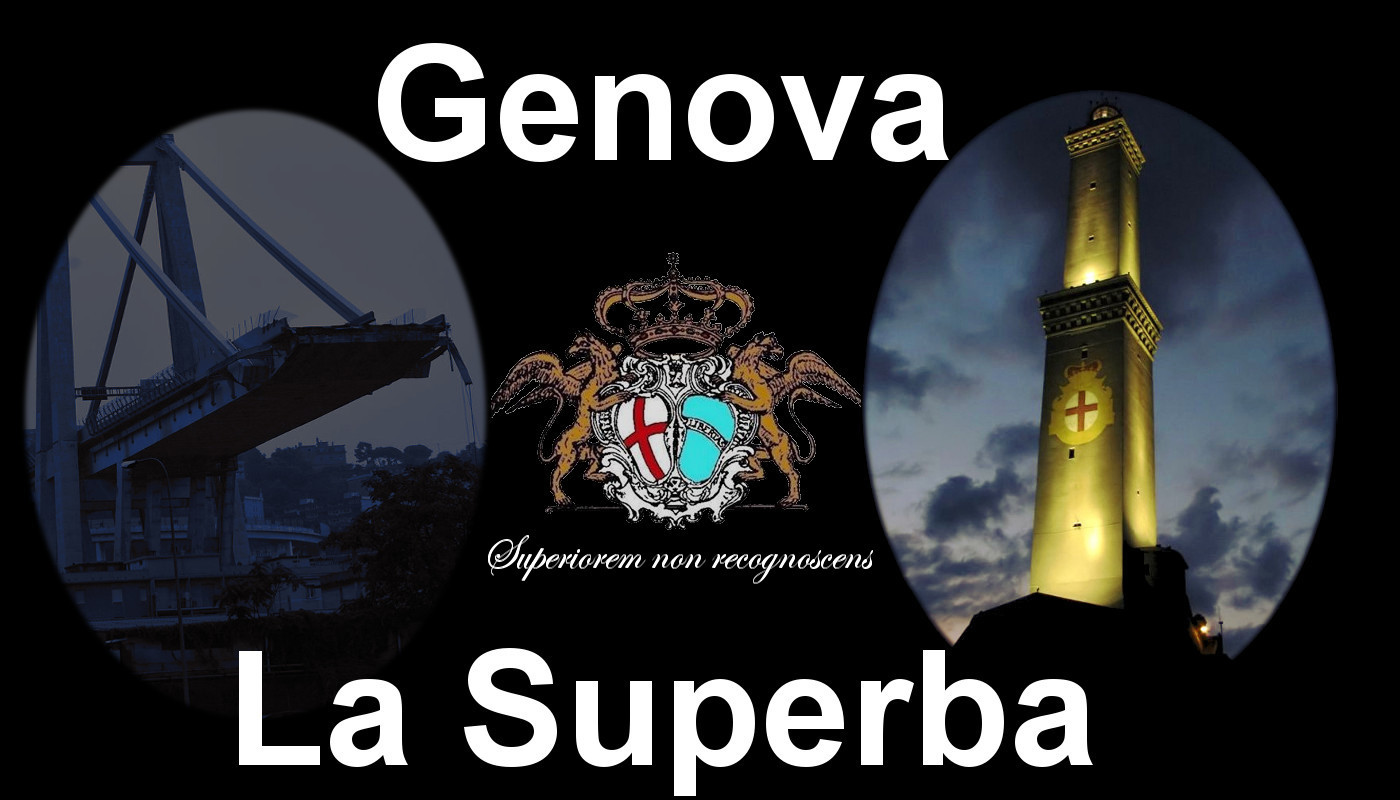
Nel 1684, per 12 giorni, piovvero su Genova 16'000 colpi di cannone sparati da una flotta francese di oltre 150 navi.
Durante la carneficina gli assalitori sbarcarono oltre 3'500 soldati per invadere la nostra Citta',
ma furono ricacciati indietro dai nostri Concittadini nonostante il loro sbarramento di fuoco.
Alla fine dei 12 giorni, la flotta francese si ritiro', avendo esaurito tutti i colpi per i cannoni, mentre sui bastioni della Superba
continuavano a garrire i nostri Colori Invitti.
Il re sole fu spinto dal papa a sospendere le ostilita' con Genova e il Doge Lercari invitato
a versailles con tutti gli onori ebbe a dire, secondo la tradizione, che la cosa piu' straordinaria di tanta opulenza,
per lui, fosse proprio la presenza del Doge Genovese medesimo.
Coraggio, Humor e Spirito Indomito non sono mai mancati a Genova ed ai suoi figli e figlie.
Oggi, 14/8/2018, una tragedia ha colpito la nostra Citta'. E' tremenda, ma non e' nulla rispetto a cio'
che abbiamo subito in passato e, come in passato, ci batteremo con Passione, Amore e Coraggio
per i nostri Amici, Fratelli, Sorelle, Concittadini e per ricostruire la nostra Meravigliosa Citta'.
Piangiamo i caduti, aiutiamo le vittime e ricostruiamo il ponte!
Forza Genova!
Genoa Major Credits
Genoa is the major town for Ligures, an Indo-European people who appear to have originated in the Region thousands years ago; elements of the Ligures appear to have migrated to other areas of western Europe, including the Iberian peninsula. They fought with Romans receiving credits as smaller celtic population, framed than Gauls, but physically stronger, more ferocious and fiercer as warriors, hence arise their reputation as mercenary troops still going along middle age in all Europe.
Genoa was probably the major Ship Yard during Roman Empire, since II century BC, proving major support during Punic Wars and turning the town into one of the major Construction Site of Mediterranean Sea during Roman Empire.
Genoa turned into an Independent Maritime Republic since 1099 AD up to 1815 AD and adopted Saint George’s Cross as Flag and Gryphons as symbols for the Coat of Arms with Latin word “Libertas” (Freedom); the Genoa’s Motto was “superior non recognoscens” (the Republic don’t recognize any superior).
Genoese, as Ligurian Language, is credited as a full and complete idiom including grammar, writing and official major texts.
Genoa, thanks to his Power and Highly Qualified Republic Structure, was entitled to be named as Most Serene Republic (Serenissima Respublica in Latin) by the Pope (as well as Venice).
In facts, Genoa was using a Democratic Systems inspired by Greek Democracies and Roman Republic since 1099 AD up to ‘800; just Napoleon and consequent Wien Congress (1814 AD) were able to lead to the fall of the Genoa Republic.
Since 1128 AD, Genoa erected the Lighthouse of Genoa that was extended and is still the Symbol of the Town (117m elevation, 77m high) credited as tallest building in Europe for many centuries.
Based on traditions, it is stated that Richard the Lionheart, King of England, paid Genoa Republic in 1189 to get permission to use Genoa Flag (Saint George’s Corss) on his ships during the 3rd Crusade just to avoid problem with Pirates; the Saint George’s Flag is still in use today by England.
Genoa is supposed to be the place where Banking was created or among one of the first place (with Florence and Venice); indeed the Casa di San Giorgio (1408 AD) is supposed to be first modern Bank of the World; in facts Genoa was used to finance along Centuries the British, France and Spanish Kings and to introduce new concepts such as bills and coins.
Genoa erected the Galata Tower in Istanbul as tallest building in the town (66m) since 1348 AD and used it during long alternate trades and war period with Ottomans up to 1453 AD; from this tower is credited by Turks the human first flight with wings based on Leonardo’s drawings in 1632 AD, the Tower is still one of the major symbol of Istanbul.
Genoa was one of the most rich cities in middle age together with Florence and Venice and was often fighting with other Maritime Republic, destroying Pisa in Meloria Battle 1284 AD and with Venice, winning alternatively wars along centuries.
Francesco Grimaldi, founder of Monaco Princedom, was a Genoese that served, before his conquer of Monaco’s Rock, as Consul for the Republic (1297 AD).
Genoa is the place where Marco Polo (Venetian) dictated Million while he was prisoner after a main Victory of Genoa Fleet against Venice; this is the first comprehensive document on China and East Asia dating back to 1298 AD.
Genova is usually titled as "la Superba" (the Superb) based on the nicknamed provided by Francesco Petrarca, poet that in 1358 AD wrote: "Vedrai una città regale, addossata ad una collina alpestre, superba per uomini e per mura, il cui solo aspetto la indica signora del mare" (You will see a Royal City, laying on Alp Mountains, Superb for People and Walls, that makes it evident while She is the Queen of the Sea).
Genoa is supposed to be the place where Christopher Columbus born in 1451 AD, he learned to sails under Genoa Flag, before to move to discover of Americas for the Crown of Castile.
Genoa established his University in 1471 AD as stated in Papal Bull, the Engineering Faculty was established as Royal Naval Engineering College since in 1870 AD.
Genoa is supposed to be the place where Commodity Exchange Structure had its origins, around 1500 AD.
Blue Jeans is a traditional Genoese dress and tissue originated based on fabric emerged in the cities of Genoa, Italy, and Nîmes, France; it was used since 1538 AD for dress and for pennants; the current name is supposed to be originated by Gênes, the French word for Genoa.
Genoa provided a crucial support in Lepanto Battle, leading the deep sea fleet confrontation and guaranteeing the victory of Christian Fleet against Ottoman Empire in 1571AD
Genoa invented Lotto around 1600 AD: initially it was as a system to conduct Stochastic Elections among candidates as well as opportunity to gamble on the election results; considered the profitability of this system the names were soon substituted by numbers and the extractions duplicated also in weeks without elections just to provide opportunities to gamble.
In 1637 AD the Holy Mary was established as Queen of Genoa, with recognition by Pope and Emperor of Holy Roman Empire, guaranteeing Genoa all privileges of major monarchies and ranked the Town among the major Kingdoms, despite the fact that it was still a Republic where Holy Mary was appointed as Queen.
Genoa was the first town to establish a Recovery Center for Poor people in Europe and World, despite the fact that Genoa People is supposed to be pretty tight; in facts Genoa starting, in 1652 AD, the reconstruction of the first Hospice for Poor People (still existing) to face incoming epidemics.
In 1684 AD, Genoa was heavily bombed by a fleet of 150 ships by Luis XIV, but the attack was defeated and the Town survived.
Giovanni Battista Perasso, nicknamed Balilla, was the Genoese poor boy who started the revolt of 1746 AD against the Habsburg forces that occupied part of city: he ignited the revolt by his battle cry “Che l’Inse?” (who is the first to start the fight?) while throwing a stone at an Austrian official whipping Genoa Citizens for pulling a cannon on a street.
Genoa was owning many territories including Corse that was sold to France in 1768 AD.
Giuseppe Mazzini born in Genoa (1805 AD) and he was the major Italian philosopher, journalist, activist for the unification of Italy and spearhead of the Italian Revolutionary Movement.
Goffredo Mameli born in Genoa (1827 AD) and died in Rome in 1849 as Italian patriot, poet, and write; he was a notable figure in the Italian Revolutionary Movement and the author of the Inno d’Italia, the National Anthem.
Simon Boccanegra us an Opera by Giuseppe Verdi (1843 AD) based on the play of Simón Bocanegra, first Doge of Genoa.
In 1860 AD, from Quarto quarter of Genoa, it was started the Expedition of the Thousand with around 1’000 volunteers (1’162 men) led by Giuseppe Garibaldi; they sailed from Genoa to Marsala in Sicily and alone conquered the whole Kingdom of the Two Sicilies ruled by the Spanish Bourbons, representing major event in Italy Unification.
Genoa established first Yacht Club in Italy since 1879 AD, YCI (Yacht Club Italiano) created satellites in many Cities to develop Italian Sailing Activity as seeds for other Clubs, it won many prestigious Trophies and Cup, obtaining Gold Medals in Olympics and establishing classical Regattas such as Giraglia; YCI participated to America’s Cup with several Challenges. YCI President has served for decades also as World President of the of the International Sailing Federation (formerly International Yacht Racing Union).
Italian Socialist Party was established in Genoa in 1892 AD and the town was always a very industrialized center and the major Italian Port.
Genoa established Genoa Cricket and Football Club in 1893 AD as first Italian Soccer Team: it won 9 Italian Football League Cup and it was missing the 10th just during fascism because mussolini, dictator, required the League to replay the final game, already won by Genoa, in order to have his own team as winner.
Genoa is a type of Sail for Racing Yacht introduced by a Swedish Sailor during Regattas in Geoa in 1926 AD.
In 1930 AD, Guglielmo Marconi, aboard from Elettra, moored at YCI in the Duca degli Abruzzi Genoa turned on the lights of the Sydney City Hall as demonstration of his invention: radio telegraphs.
The first Italian Skyscreaper is erected in Genoa (1940 AD) based on Arch.Piacentini Design, undisputed Tallest Italian Building up to 1954 (and disputed tallest up to ‘90 based on inconsistent measurement results on this and other Italian buildings).
Genoa was heavily bombed during II World War; the 25th April 1945 the Genoa Local Forces of Italian Resistance attacked Germans obtaining to free the town by themselves without support of Allied Force; Cardial Boetto negotiated with German forces their withdraw without detonating any charge on the Port.
In 1948 Cardinal Siri, Archbishop of Genoa, blocked the plans for a papal excommunication of Communists and in the following years, he acted as a negotiator between Ship Owners, Port Authority and Port Labor Unions.
In 1979 AD Guido Rossa, worker and labor union representative fought heavily against Red Brigades destroying their influence on socialist groups and was killed by them.
Pesto sauce is originated in Genoa since many centuries.
Genoa Salami is a characteristic variety of salami commonly believed to have originated in the area of Genoa locally known as Salame (di) Sant'Olcese.
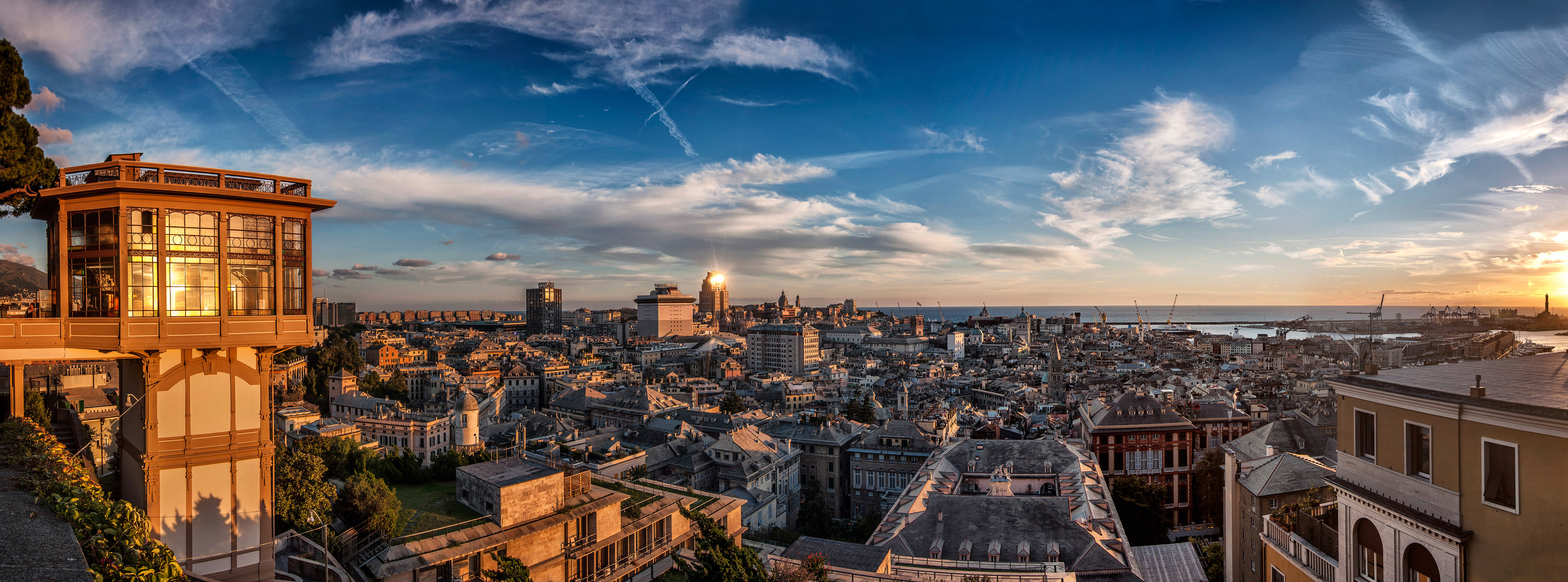
Zena /
Genoa
-
 -
-


 In 1684, for 12 days, a french fleet of over 150 ships shot 16,000 cannon balls on Genoa, the "Superb".
In 1684, for 12 days, a french fleet of over 150 ships shot 16,000 cannon balls on Genoa, the "Superb". 




 Courage, Humor and Indomitable Spirit have never been lacking in Genoa and its Sons and Daughters.
Courage, Humor and Indomitable Spirit have never been lacking in Genoa and its Sons and Daughters. Today, August 18 MMXVIII, a tragedy has struck our City, it is tremendous, but nothing compared to what we have to suffer in the past and,
I am sure that, as happen in the past, we will fight with Passion, Love and Courage for our Friends, Brothers, Sisters, Fellow Citizens as well as to rebuild our Wonderful City.
We pray for victims and we reconstruct the bridge!
Today, August 18 MMXVIII, a tragedy has struck our City, it is tremendous, but nothing compared to what we have to suffer in the past and,
I am sure that, as happen in the past, we will fight with Passion, Love and Courage for our Friends, Brothers, Sisters, Fellow Citizens as well as to rebuild our Wonderful City.
We pray for victims and we reconstruct the bridge! 




































































































